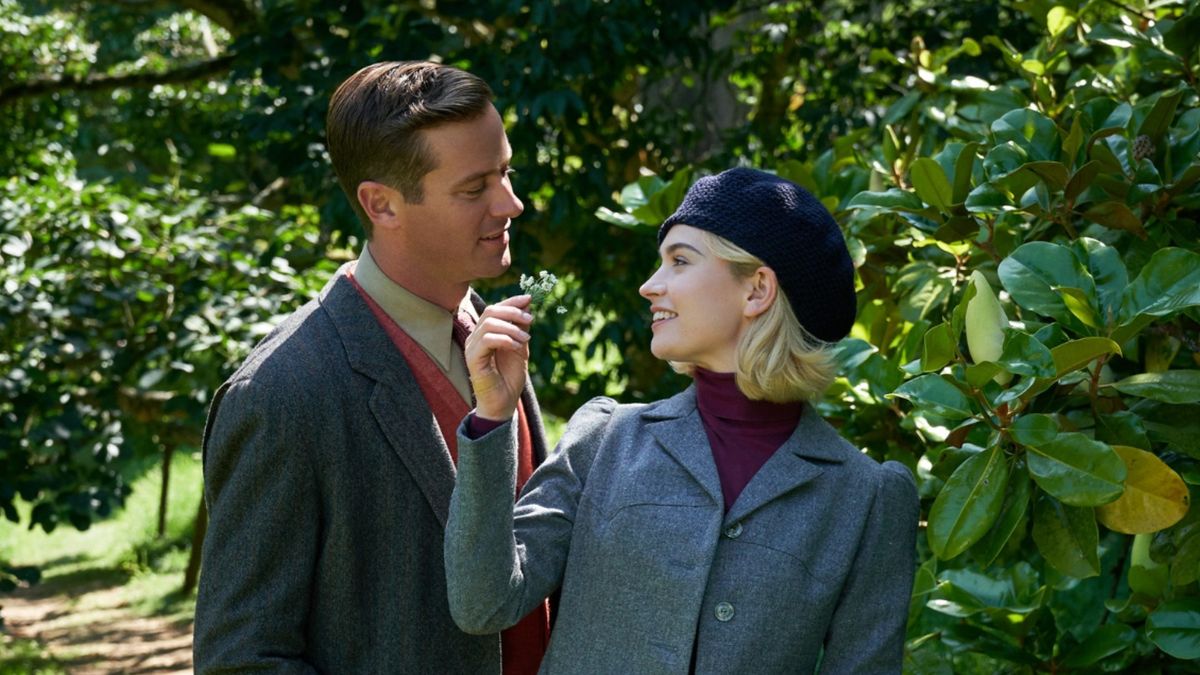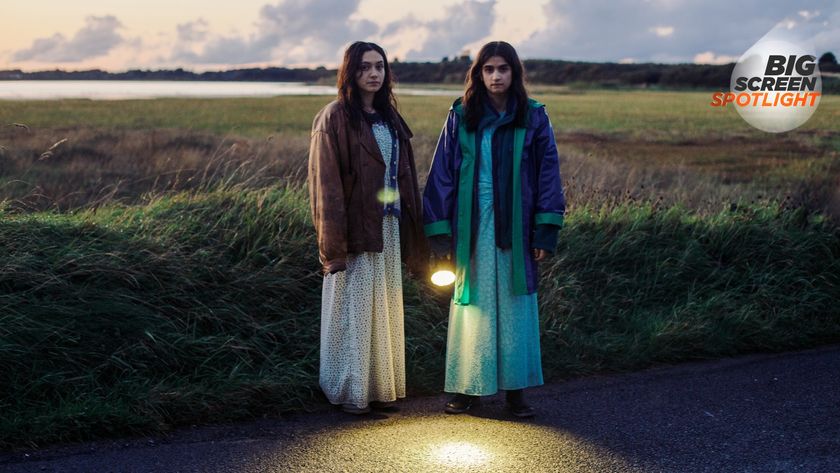Rebecca ending: Why the new Netflix film differs from the book
Director Ben Wheatley explains why Netflix's Rebecca ending is different to the book

Daphne du Maurier's Rebecca ending may be seared into the minds of everyone who has read the iconic novel, yet director Ben Wheatley – who has adapted the work for Netflix – has made a major change to the finale.
And we really mean major. The new Rebecca ending extends the lives of these characters beyond the ones seen in both the book and Alfred Hitchcock's Oscar-winner 1940s adaptation. But, before we dive into the differences, here's your spoiler warning – we are going to discuss, in detail, the final moments of both Netflix's Rebecca and du Maurier's original.
As you have witnessed, Wheatley's version of events – for the most part – plays out as Rebecca fans would expect. The wealthy widower Maximilian "Maxim" de Winter (played by Armie Hammer) marries an unnamed former women's companion (Lily James) and the pair return to Maxim's manor house, Manderly, after their honeymoon. However, the house is haunted by the spectre of Rebecca, the first Mrs De Winter. There's also Mrs Danvers (Kristin Scott Thomas) – the housekeeper who loved Rebecca – to contend with.
Events at Manderly unfurl and Mr De Winter is soon being tried for the murder of Rebecca. Maxim, in this version and the book, is actually the culprit – whereas, in the Hitchcock version, Rebecca's death is accidental (though that was partly due to Hollywood censorship at the time). However, Maxim's found not guilty, and he and the second Mrs De Winter return to Manderly – yet, as they drive back home, the building is seen burning down.
Now, the novel ends here. It's strongly hinted that Mrs Danvers burns down Manderly after Maxim's set free, but the second Mrs De Winter, who narrates the book, wonders: "Mrs Danvers. I wonder what she is doing now." Hitchcock's movie took this one step further and showed Mrs Danvers burning down Manderly.
Wheatley took this one step further. Mrs Danvers burns down the house and then goes to the ocean – Rebecca's body had been found in the ocean, hence her want to go down there. Lily James' character follows her down and witnesses Danvers jump into the ocean, where she dies.
Then, there's a time jump, and the De Winters are happily on holiday in Cairo. the second Mrs De Winter then says, in a voice-over: "I can see the woman I am now and I know that I have made the right decision. To save the one thing worth walking through flames for. Love."
Sign up for the Total Film Newsletter
Bringing all the latest movie news, features, and reviews to your inbox
That new Rebecca ending sounds fairly optimistic, yet, speaking with Digital Spy, Wheatley said that's not quite how he views it. "I think it depends on what your state of mind is when you watch it – whether it's optimistic or not," he said. "I'm not sure it's that upbeat. I think they're trying to make the best of it in many ways, and it's kind of a bittersweet ending.
"Because really, the ending is Danvers going, 'He killed his wife, and you're going to stand by him. And you'll never know happiness. Goodbye'. It's hard to recover from that. I like that it's a bit of a nasty taste in your mouth, that ending. [Mrs De Winter] looking to the camera is like… I feel like she's going to leave him. I don't feel like she's going to hang around for long because he's damaged goods. He's showing his hand, which is incredibly weak. He's a murderer, and she helped him get through that."
Do you agree with the changes made to the Rebecca ending? It's no doubt a controversial decision, but one in keeping with the movie as a whole. While we debate away, make sure to check out all the best Netflix movies available right now.

Jack Shepherd is the former Senior Entertainment Editor of GamesRadar. Jack used to work at The Independent as a general culture writer before specializing in TV and film for the likes of GR+, Total Film, SFX, and others. You can now find Jack working as a freelance journalist and editor.
Most Popular










